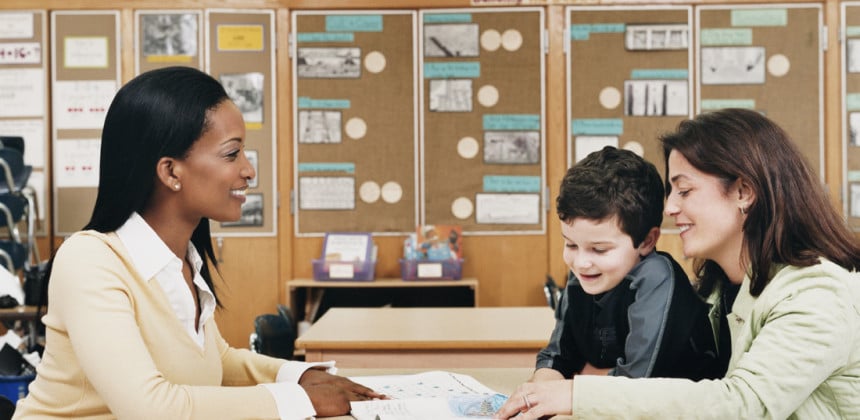Positive parenting discipline promotes a nurturing and respectful approach to guiding children’s behavior, encouraging cooperation and self-discipline. It fosters healthy parent-child relationships and emphasizes effective communication strategies to teach appropriate behaviors and address misbehavior.
By implementing positive reinforcement, setting clear expectations, and offering choices, positive parenting discipline helps children develop self-control and learn from their actions, fostering their emotional and social development. It focuses on problem-solving and teaching life skills rather than punishment, creating a safe and loving environment where children feel valued, understood, and supported.


Credit: genmindful.com
Understanding Positive Parenting Discipline
Positive parenting discipline is a crucial aspect of raising happy and well-adjusted children. It focuses on nurturing and guiding children instead of relying on punishment or strict rules. This approach encourages positive behavior by fostering a strong parent-child connection based on mutual respect and understanding.
Positive parenting discipline sets clear boundaries and expectations while ensuring consistent enforcement. It promotes open communication, active listening, and problem-solving skills, helping children learn from their mistakes and develop self-control. The core principles of positive parenting discipline emphasize empathy, positive reinforcement, and the use of logical consequences.
It is important because it promotes the development of healthy self-esteem, empathy, and social skills in children. By using positive discipline techniques, parents can create a supportive environment where children feel safe to explore, learn from their experiences, and grow into responsible and compassionate individuals.
The Power Of Connection And Communication
Positive parenting discipline is all about the power of connection and communication. Building strong parent-child relationships is crucial. Active listening plays a key role in effective communication. It helps nurture empathy and emotional intelligence in children. By truly listening to our children, we show them that their thoughts and feelings matter.
This helps create a safe and trusting environment where they feel understood and validated. Through open and honest communication, we can guide our children in understanding the consequences of their actions and making better choices. By prioritizing connection and communication, we can build a strong foundation for positive discipline that promotes mutual respect and understanding.
Encouraging And Reinforcing Positive Behavior
Positive parenting discipline involves encouraging and reinforcing positive behavior in children. One effective strategy is catching your child being good, which harnesses the power of positive reinforcement. By recognizing and praising their desirable actions, you can motivate them to continue behaving positively.
It is crucial to offer effective praise at the right time to make it meaningful and impactful. Additionally, using rewards and incentives can be a useful tool in reinforcing positive behavior. However, it is essential to use them effectively, ensuring they are aligned with your child’s interests and promoting long-term positive behavior.
By adopting these strategies, parents can create a positive and nurturing environment for their children, fostering healthy development and emotional well-being.
Setting Clear Boundaries And Expectations
Positive parenting discipline involves setting clear boundaries and expectations for children. These boundaries provide structure and guidelines for behavior, helping children understand what is expected of them. Consistent rules are crucial because they allow children to develop a sense of security and predictability.
Age-appropriate expectations ensure that children have achievable goals to work towards, promoting their sense of accomplishment and self-confidence. When children fail to meet these expectations, consequences and discipline are necessary to teach them about responsibility. By enforcing consequences for unwanted behavior, parents help children understand the impact of their actions and encourage them to make better choices in the future.
Through positive parenting discipline, children can learn valuable life skills and grow into responsible individuals.
Embracing Problem-Solving And Conflict Resolution
Positive parenting discipline focuses on embracing problem-solving and conflict resolution to teach children valuable skills. By teaching problem-solving skills, parents empower their children to find solutions to their own challenges. Conflict resolution is approached with a win-win mindset, encouraging open communication and understanding.
Modeling healthy conflict management is crucial for children to witness firsthand how to handle disagreements effectively. Parents who practice positive parenting discipline create an environment where problem-solving and conflict resolution become natural habits for their children. This approach promotes healthy relationships, empathy, and the ability to navigate obstacles successfully.
Through positive parenting, children are equipped with essential life skills that will benefit them in their personal and professional lives. It is important to foster an atmosphere of positive discipline that encourages problem-solving and conflict resolution for the long-term growth and success of our children.
Effective Discipline Techniques
Positive parenting discipline involves using effective techniques to guide and teach children. When it comes to discipline, it’s important to choose approaches that are both firm and respectful. Time-outs can be used as a technique to give children a moment to reflect on their behavior and calm down.
Natural consequences are another valuable tool, allowing children to learn from their actions and experience the outcomes firsthand. Redirection and distraction techniques can be helpful in diffusing conflicts and steering children’s attention towards more positive behaviors. By implementing these discipline techniques, parents can foster a nurturing and supportive environment that encourages their children’s growth and development.
Effective discipline techniques promote a healthy relationship between parents and children, laying the foundation for well-rounded individuals in the future.
Practicing Self-Care And Self-Reflection
Practicing self-care is crucial for effective discipline. By embracing self-reflection, parents can identify patterns and triggers that lead to disciplinary challenges. It is important for parents to seek support from a parenting community, as this can provide valuable insights and advice.
Taking time for self-care allows parents to recharge and better handle discipline situations with a calm and composed mindset. This includes engaging in activities that promote relaxation and stress reduction, such as exercise, meditation, or hobbies. By prioritizing their own well-being, parents can better meet the demands of parenthood and create a positive and nurturing environment for their children to thrive in.
Ultimately, practicing self-care and self-reflection is an essential component of positive parenting and effective discipline.
Long-Term Benefits Of Positive Parenting Discipline
Positive parenting discipline has long-term benefits for children, including emotional well-being and resilience. Building strong parent-child relationships is crucial for their future. By instilling positive values and life skills, parents can help their children develop into confident and responsible individuals.
Positive parenting helps children understand their emotions and teaches them how to express themselves in a healthy manner. It also promotes resilience, empowering children to face challenges with determination and adaptability. This approach creates a nurturing environment that encourages open communication and mutual respect between parents and children.
As a result, children grow up feeling secure and valued, which positively impacts their overall well-being. Positive parenting discipline lays a strong foundation for the future success and happiness of children. It equips them with the necessary tools to navigate life’s obstacles and thrive in all aspects of their development.
Frequently Asked Questions On Positive Parenting Discipline
What Is Positive Parenting Discipline?
Positive parenting discipline is an approach that focuses on teaching children appropriate behavior through positive reinforcement, communication, and understanding. It aims to guide children to make good choices and learn from their mistakes, rather than relying on punishment or rewards alone.
How Does Positive Parenting Discipline Differ From Traditional Discipline Methods?
Unlike traditional discipline methods that rely on punishment and control, positive parenting discipline emphasizes mutual respect, empathy, and open communication. It encourages parents to understand the reasons behind their child’s behavior and teaches them how to address those needs effectively, fostering a healthy parent-child relationship.
Can Positive Parenting Discipline Be Effective For All Age Groups?
Yes, positive parenting discipline can be effective for children of all age groups. The strategies may vary depending on the child’s developmental stage, but the underlying principles of empathy, communication, and positive reinforcement remain consistent. By adapting the strategies to match the child’s age and developmental needs, positive parenting discipline can be successful in promoting healthy behavior at any stage.
How Can I Implement Positive Parenting Discipline In My Daily Routine?
To implement positive parenting discipline, start by setting clear expectations and boundaries for your child. Use positive reinforcement, such as praise and rewards, to encourage desired behavior. Practice active listening and empathy to better understand your child’s perspective. Also, be consistent and provide a safe and nurturing environment for your child to learn and grow.
What Are The Benefits Of Using Positive Parenting Discipline?
Positive parenting discipline promotes healthy emotional development, strengthens the parent-child bond, and fosters a positive self-image in children. It encourages problem-solving skills, empathy, and respectful communication. Research has shown that children raised with positive parenting discipline tend to have improved behavior, better social skills, and higher self-esteem.
Conclusion
Positive parenting discipline is a powerful approach that promotes a healthy parent-child relationship based on trust, love, and respect. By focusing on positive reinforcement, setting clear boundaries, and effective communication, parents can create an environment where children feel safe, supported, and empowered.
This parenting style fosters emotional well-being and encourages children to develop self-discipline skills that will serve them throughout their lives. Effective discipline strategies, such as setting realistic expectations, providing consistent consequences, and offering alternatives to punishment, help children understand the impact of their actions.
By maintaining a calm and patient demeanor, parents can model healthy behavior and teach essential life lessons. Positive parenting discipline is not about being permissive, but rather about teaching children the skills they need to thrive in the world. By adopting this approach, parents can raise confident, resilient, and socially responsible individuals who are equipped to navigate challenges and make positive choices.
Embracing positive parenting discipline is an investment in the future, one that will yield lifelong benefits for both parents and children.



